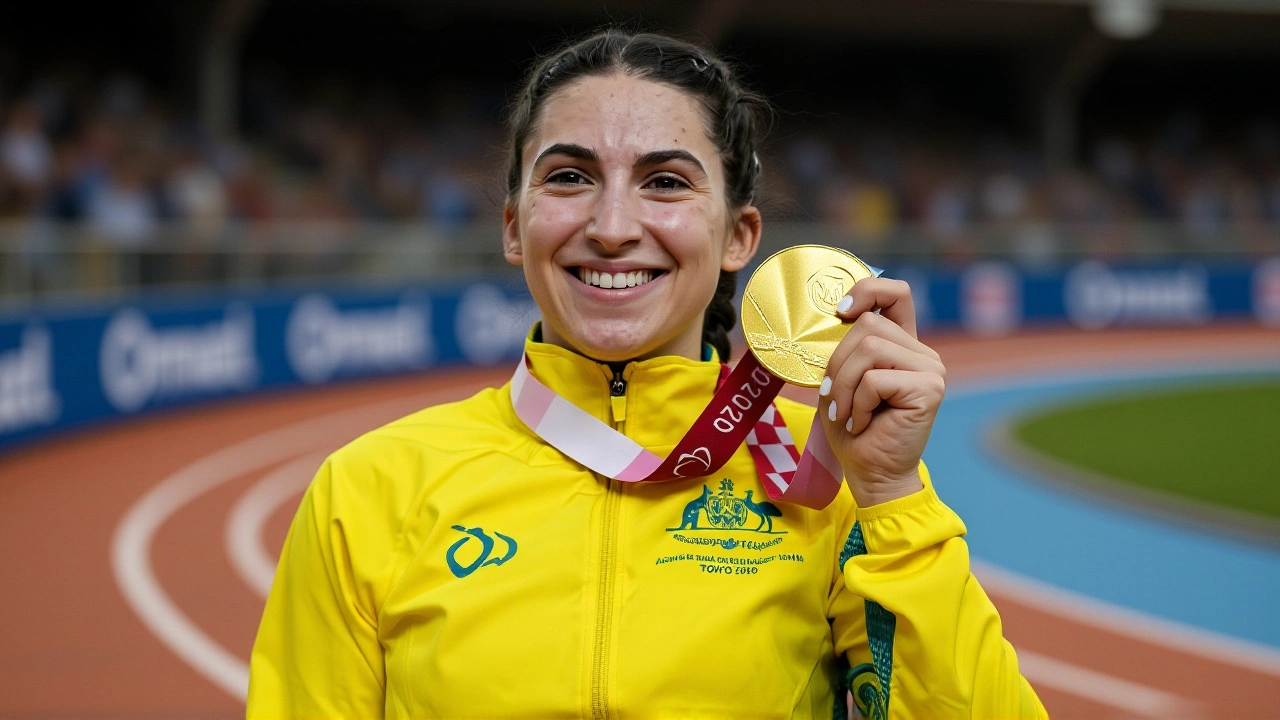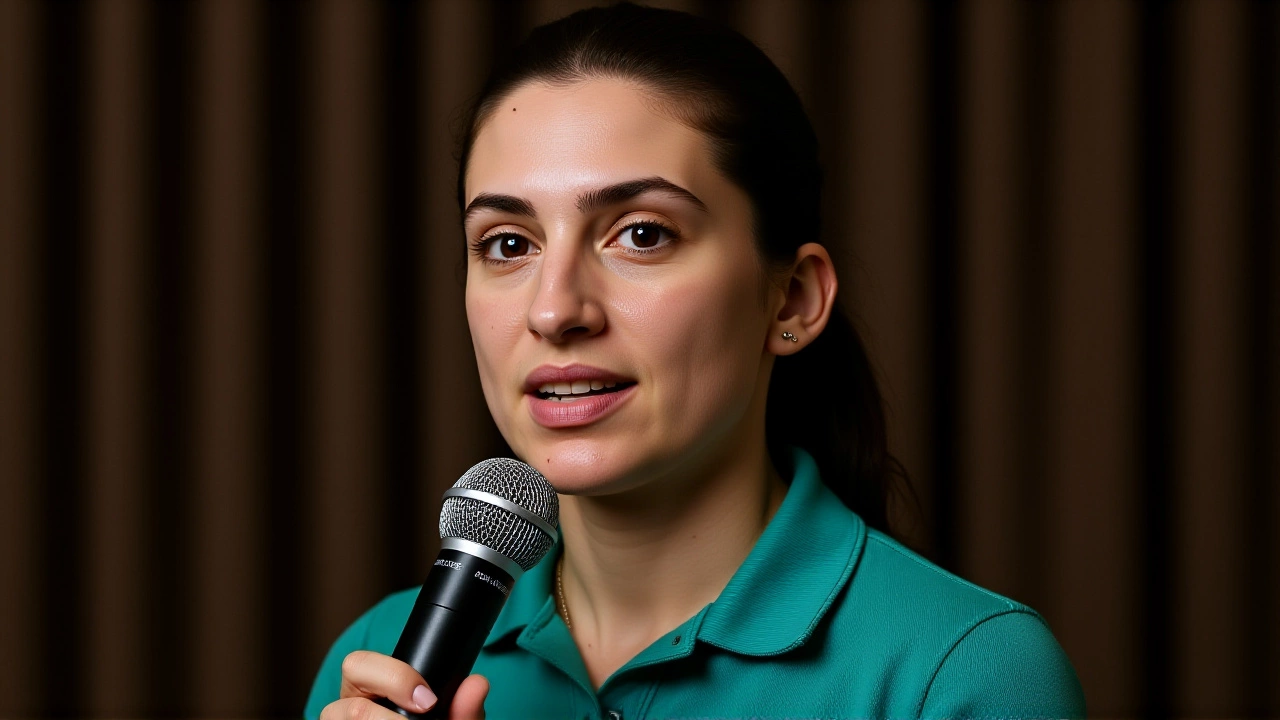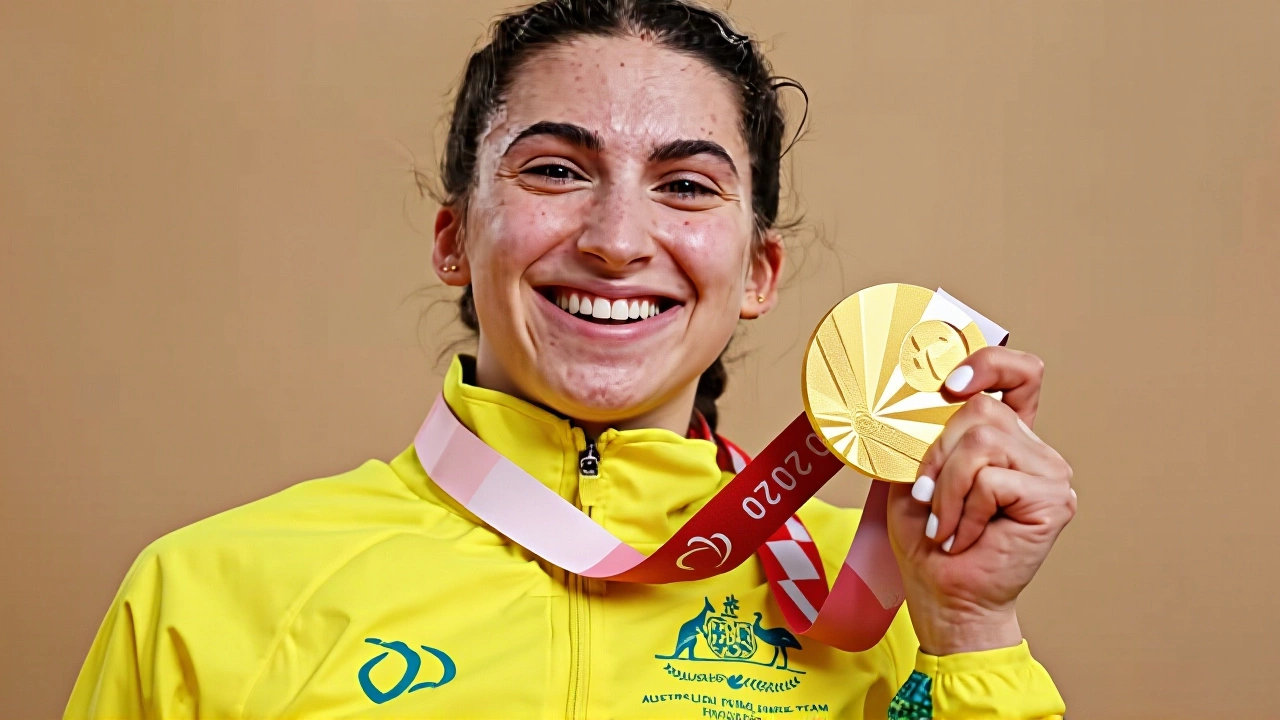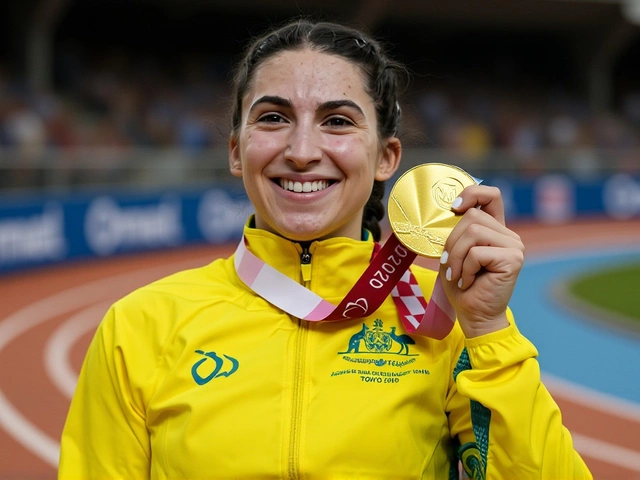Paralympic cycling champion Paige Greco dies at 28 after sudden medical episode in Adelaide

Paige Greco, the Australian Paralympic cyclist who won Australia’s first gold medal at the 2020 Tokyo Paralympics, died suddenly at age 28 at her home in Adelaide, South Australia, on Sunday, November 16, 2025. The news broke just after midnight UTC on November 17, when 7NEWS Australia confirmed her passing following a sudden medical episode. Within hours, the Associated Press relayed the report through ESPN, cementing the tragedy as a global moment of grief for the Paralympic community. Greco wasn’t just an athlete—she was a symbol of resilience, a record-breaker, and the face of Australian Paralympic cycling for a generation.
A Champion Who Redefined Possibility
At the 2020 Tokyo Paralympic GamesTokyo, Greco didn’t just compete—she shattered expectations. In the women’s C3 3000m individual pursuit, she set a world record of 3:36.609 in qualifying, then lowered it to 3:33.087 in the final to claim gold. That medal was Australia’s first of the Games, a milestone that echoed far beyond the velodrome. Her C3 classification—reserved for athletes with moderate impairments affecting limbs and trunk—made her dominance even more remarkable. She didn’t just win; she rewrote the limits of what was thought possible.Over her career, Greco broke more than half a dozen world records across track and road events. Her consistency was unmatched. In 2022, she took gold at the Para-cycling World Championships in Cascais, Portugal. In 2023, she defended her title in Rio, clocking a time that stood unchallenged for 14 months. She was named Female Paralympian of the Year by Cycling Australia in 2021 and 2023. Friends called her "the quiet storm"—soft-spoken off the bike, ferocious on it.
A Life Cut Short in Adelaide
Greco lived in the leafy suburb of Adelaide, a city of 1.4 million known for its cycling culture and strong support for adaptive sports. The exact time of the medical episode remains unknown. No family statement, no police report, no hospital confirmation has been released. The cause of death has not been disclosed. What we know is this: she was healthy, training, and preparing for the 2026 Para-cycling World Championships in Hong Kong. Colleagues say she’d just returned from a training camp in Canberra two weeks prior.Her death sent shockwaves through Australia’s sporting community. At the Australian Paralympic Committee headquarters in Batman, Victoria, staff were in disbelief. No official tribute had been issued as of Monday evening. But messages poured in from athletes worldwide. Dutch para-cyclist Rik Wouters posted: "She raced like she had nothing to lose—and that’s why she won everything."

Why This Matters Beyond the Podium
Greco’s impact extended far beyond medals. She was a vocal advocate for funding parity in para-sports. In 2023, she testified before the Australian Senate on the need for better access to adaptive cycling equipment, citing her own struggle to secure a custom-built trike until age 24. "We don’t need pity," she said. "We need equity."Her death comes at a critical moment. Australia’s investment in para-sports has grown since Tokyo, but disparities persist. Only 18% of para-athletes receive full-time funding. Greco was one of them. Her absence leaves a void—not just in competition, but in mentorship. She coached junior athletes at the South Australian Institute of Sport every Tuesday and Thursday. Dozens of young riders now face a future without her.
What’s Next?
As of now, no funeral arrangements or memorial services have been announced. The Australian Paralympic Committee has not confirmed whether the upcoming 2025 UCI Para-cycling Track World Championships in Rio de Janeiro will include a moment of silence. But insiders say it’s inevitable. The cycling world doesn’t forget its legends.Meanwhile, the Paralympic movement faces a sobering question: how many more athletes like Greco are pushing past their limits without adequate medical support? Her sudden death—without warning, without public struggle—is a reminder that elite athletes, even those who appear invincible, are human. And sometimes, the body breaks in silence.

Legacy in Motion
Greco’s name will be etched into Australian sporting history. Her gold medal in Tokyo remains the first of its kind for her country. Her world records still stand. But her true legacy? She made people believe. She made kids with cerebral palsy see themselves on podiums. She made coaches rethink training. She made sponsors write bigger checks.She didn’t just ride a bike. She rode change.
Frequently Asked Questions
What was Paige Greco’s classification in para-cycling, and what does it mean?
Greco competed in the C3 classification, reserved for athletes with moderate impairments affecting coordination in the legs, arms, and trunk—often due to cerebral palsy or similar neurological conditions. C3 athletes use standard bicycles but may require adapted handlebars or pedals. This class requires significant core strength and balance, making Greco’s world records especially impressive.
How did Paige Greco impact funding for para-sports in Australia?
Greco publicly advocated for equitable funding, testifying before the Australian Senate in 2023 about the financial barriers faced by para-athletes. She highlighted her own delayed access to a custom bike until age 24, urging reforms. Her advocacy contributed to a 22% increase in state-level para-cycling grants in South Australia between 2022 and 2024.
Why hasn’t the Australian Paralympic Committee released a statement yet?
As of November 17, 2025, the Australian Paralympic Committee had not issued a public statement, likely awaiting confirmation from Greco’s family or legal advisors. It’s common for organizations to delay official responses until next-of-kin are notified and memorial plans are underway, especially in sudden deaths.
What records did Paige Greco hold at the time of her death?
At her death, Greco held the world record in the C3 women’s 3000m individual pursuit (3:33.087, set in Tokyo 2021), the C3 500m time trial (35.421, set in 2023), and the C3 10km time trial (12:48.19, set in 2022). She also held the Australian national record in the C3 road race. None have been surpassed as of late 2025.
Could her death lead to changes in athlete medical monitoring?
Yes. While no formal review has been announced, sources within Cycling Australia say internal protocols are being re-examined. Greco was known for her rigorous training, but no public reports indicated she had underlying cardiac or neurological conditions. Her sudden death may prompt calls for mandatory cardiac screenings for elite para-athletes, similar to those in mainstream cycling.
Where will Paige Greco be remembered?
A memorial plaque is expected to be installed at the Adelaide Super-Drome, the velodrome where she trained daily. The Australian Paralympic Committee is also considering renaming its Emerging Athlete Award in her honor. Fans have already begun leaving bikes and medals at her home in Adelaide.
